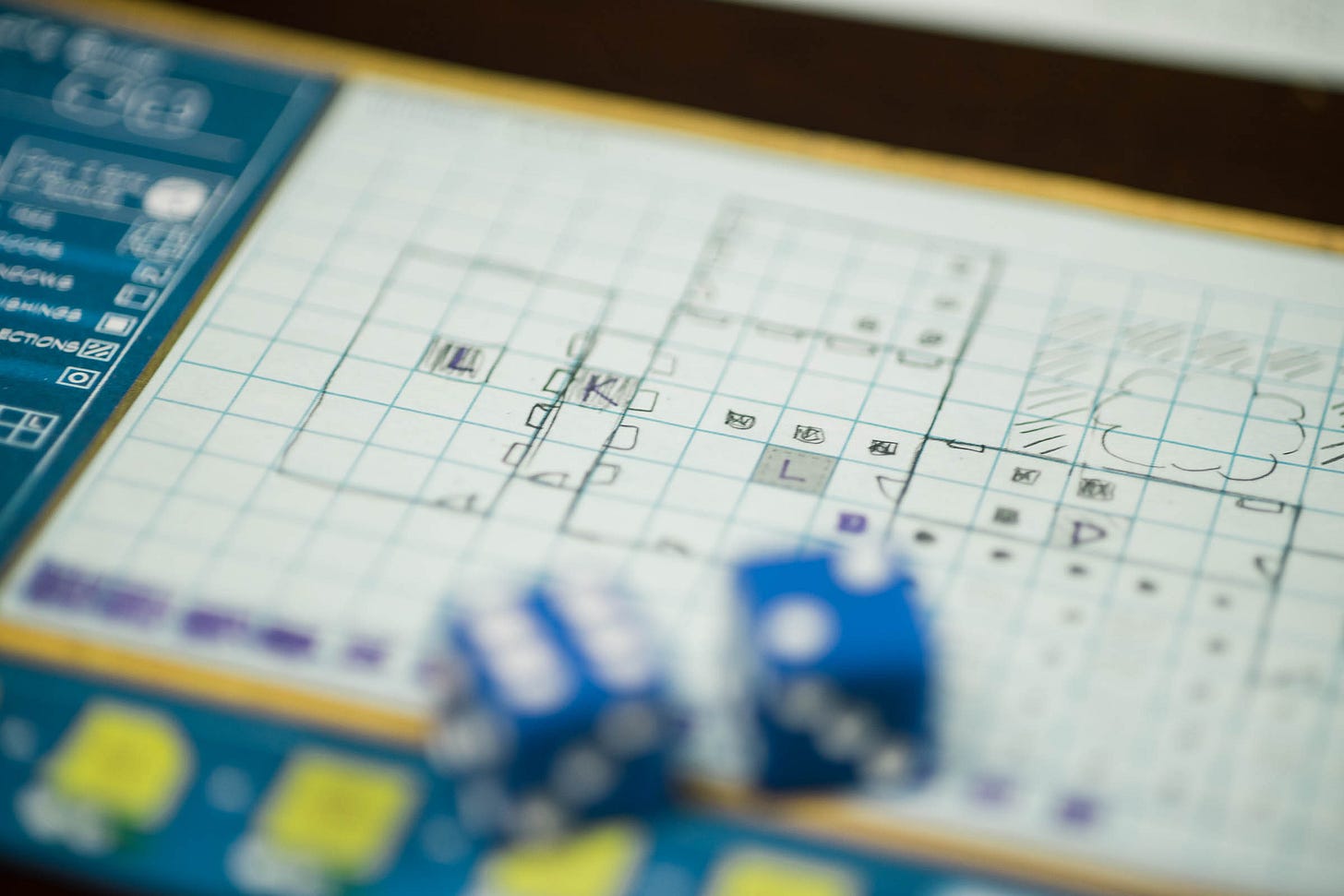One of my favorite mechanisms in the world of board games is a timeless one: Roll-and-write games pit players against dice (or cards, but those are sometimes called flip-and-fills.)
This isn’t the first time I’ve written about roll-and-write games — back in issues two and three, I wrote about those and flip-and-fill games — two parts of one whole, given they both focus on filling in something on a sheet after a random (or semi-random) input. The classic example is Yahtzee — roll some dice, write some numbers. These three games take that concept and spin it into three different directions.
On Tour has players building networks as they plan their band’s cross-country tour. Super-Skill Pinball is all about playing a great game of pinball, activating bonuses, and racking up points. Floor Plan is about building a dream house for demanding clients, but your creation might not end up the way you intended. They each present a different facet and feel, but they all thrive when you can improvise around a broad plan, which is a real hallmark of roll-and-write games.
On Tour
In On Tour, players are in a band going on tour, and by tour, I mean, you’ll be writing numbers on a board. And if that doesn’t catch you, well! — I don’t think anything will, honestly. In all seriousness, On Tour is a great network-building roll-and-write game in which you’ll roll two 10-sided dice, combining the two numbers rolled (e.g., I rolled an 8 and a 9, so I get to write 89 and 98 this turn,) writing them on your board in regions indicated by two of the three cards drawn. Those cards also highlight a city in that region — write a number there for an extra point at the end of the game.
When your map is full, you’ll draw connections between as many cities as you can in ascending order, earning a point for every city you connect. It’s a simple premise that forces you to think both tactically and strategically in equal measure.
Super-Skill Pinball
Some roll-and-write games make you feel clever. Some tax your brain and force you to think outside the box. Some are relaxing, breezy endeavors. This one is pinball. Super-Skill Pinball takes the exciting elements of pinball (less the sights and sounds) and turns it into a game that’s a faithful recreation of the pastime.
Your turns consist of sending a ball into bumpers, targets and drop zones; trying to get that elusive and valuable multiball; and even tilting the table to save yourself from an out lane. Your turns feel tactical and meaningful, and as you progress, you’ll start finding things you want to accomplish and combinations that’ll help you rack up points.
There are four iterations of this game at this point. The first is Super-Skill Pinball: 4-Cade, and it’s followed by Ramp it Up!, a Star Trek licensed variant, and a Holiday Special featuring Elf, Christmas Vacation, and A Christmas Story tables.
Floor Plan
Floor Plan is a roll-and-write that has you filling client requests for their dream home. Or maybe a nightmare home, if you are unconcerned about things like “windows” and “doors.” This game tricks you into thinking you’ll be able to execute everything exactly as you planned, but you won’t. It’s as much about dealing with the roll of the dice as it is planning ahead, and that’s a pretty solid foundation to build a game.
Each round is played simultaneously, with each player drawing either a room or features based on the two dice rolled. Those dice make up the dimension and type of room — a two and a six rolled means you’ll draw a 2-by-6 room, and in this example, it has to be either a washroom (2) or a living room (6). Alternately, you can use those dice to draw two sets features; in this example, you could draw two doors and six stones.
As you draw out a home, you’ll work to fulfill client demands. Some clients might want a pool, walk-in closets, an open kitchen, or any other number of unique features, and they award points based on the difficulty of completion, and each can be completed more than once. Once six client demands have been fulfilled, the game ends. Will you rush to complete several low-point demands, ending the game early? Or will you go for higher-value demands, drawing the game out? It adds just enough interaction around the table that you’ll want to pay attention to what everyone else is doing.
Further reading
Three Sisters, featured in Five Games for Fall, is a roll-and-write game about growing the “three sisters”: Squash, maize and beans. There’s a rondel. It’s neat.
I wrote about Ganz Schön Clever, Brikks, Noch Mal! and Railroad Ink in Issue 2: Roll-and-Write Games.
I wrote about Cartographers, Welcome To, Patchwork Doodle and Second Chance back in Issue 3: Flip-and-Fill Games.
Qwixx and Second Chance made it in Six great games you can teach in five minutes or less







